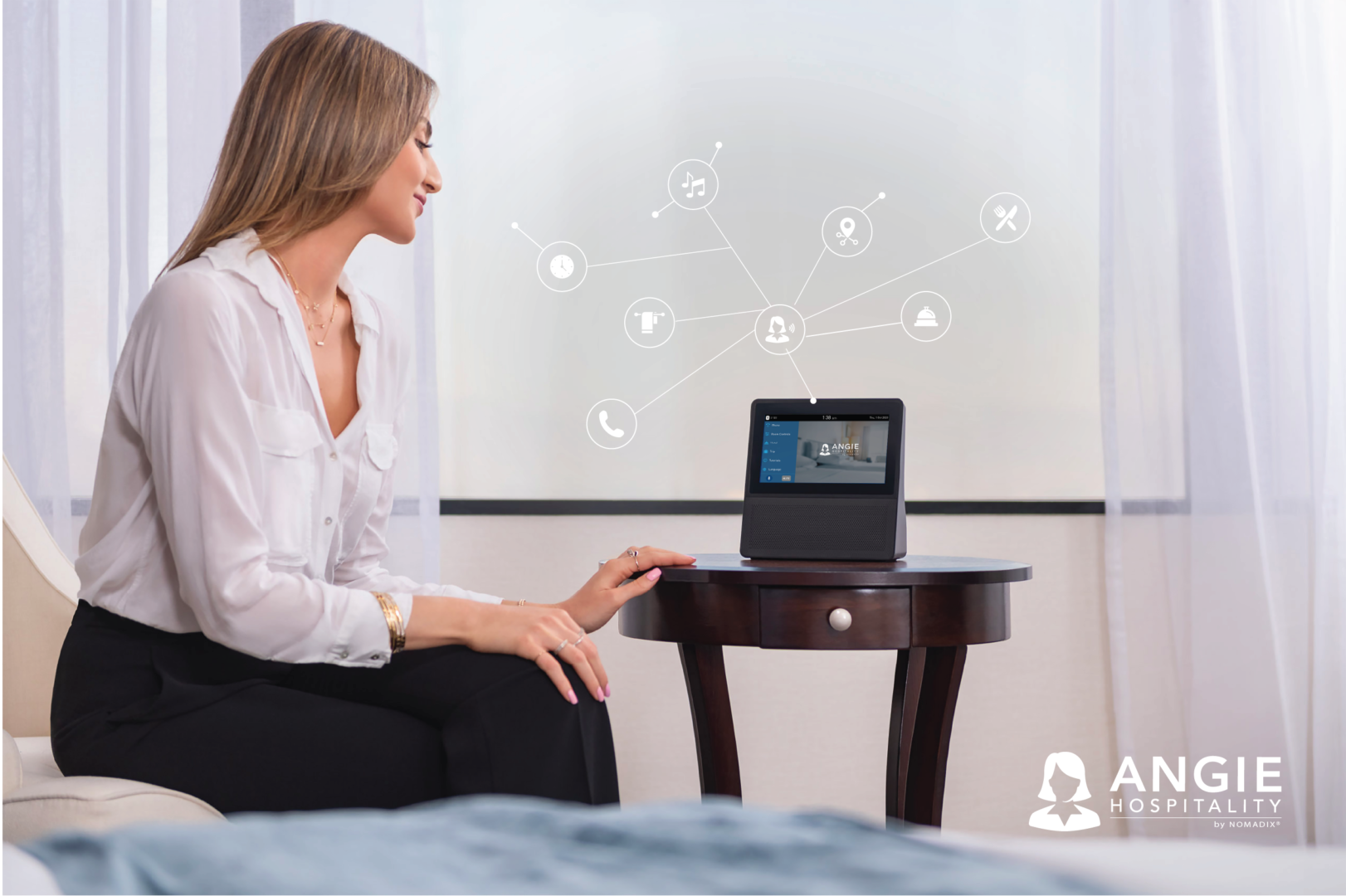
By David Millili, CEO at Angie Hospitality
The reopening of hospitality is upon us and demand will continue to increase as vaccinations get distributed and infection numbers decrease. We have an opportunity as an industry to focus on health, safety and appreciation of not just our guests but the front line workers of hotels, and tech can help us do just that.
As hotels evaluate their strategies for reopening, relieving stretched staff by implementing new technology is one of the top considerations. The global smart hospitality market is projected to grow from USD $6 billion in 2019 to over $12 billion by 2025. Let’s take a look at how technology can improve operational efficiencies and give time back to your team.
E-Greet & Retreat
A study from Metova found that 90% of respondents prefer that the hotel they visit has a mobile app offering the ability to completely manage their stay without having to interact in person, and 86% would choose one hotel over another if one offered the option of a mobile app. Mobile apps, self-serve kiosks and virtual assistants can give guests exactly what they want: a contactless way to check in and check out. Let your tech handle these simple interactions so your team has more time to handle escalations or complicated requests.
Skip Lines, Save Time
Guests have all kinds of requests throughout their stay, from needing more shampoo to requesting a late check out to wanting to know when the pool opens or when the restaurant closes. Voice-activated technology can fulfill requests and allow guests to bypass lines at the front desk and skip picking up the phone. The best tech streamlines guest requests directly into the PMS or workflow system and tracks them in real time. Your guests avoid unnecessary contact, and your team has more time to actually fulfill the requests, instead of playing messenger.
Recommend Like a Best Friend
Whether traveling for business or pleasure, guests like to enjoy the local sights and eateries. Pre-pandemic, a trip to the concierge would bring forth a slew of helpful suggestions. Now, robot concierges or voice assistants can offer recommendations tailored to guests’ specific requests, along with hours, reviews and more. They can even send directions directly to guests’ phones. These devices can also raise guest awareness to local businesses that may have partnered with the hotel.
Be Wise & Sanitize
It’s no question that health and safety of guests and staff is a top priority for hotels, especially as AHLA reports that 62% of guests consider a hotel’s cleanliness and safety protocols when choosing where to stay; however, the extra requirements for cleaning and sanitization can be burdensome. Many hotels are adopting automatic cleaning robots to handle tasks like vacuuming, cleaning windows and scrubbing floors so that teams can focus on areas that need a human touch. Many properties are using the latest in ultraviolet and electrostatic technology to speed up the process of sanitizing rooms, common areas and more.
Stay Healthy, Mitigate Risks
Along with extra cleaning duties, hosting more guests equates to more potential exposure to COVID-19 and other illnesses. Robots can protect staff and help them avoid additional sick days by stepping in to assist: a hotel in South Africa is currently deploying robots in place of people for symptomatic guests to ensure limited contact with staff and other guests.
Work Full Time, All the Time
One of the most noteworthy benefits of technology is that it is on the clock 24/7. Assisting with check in, taking guest requests, offering recommendations or cleaning can be done any time of day or night. Plus, tech doesn’t need breaks or vacations. During the night or slow periods when many guests are asleep and less staff are on-site, technology can bear the brunt of the requests that do come in.
How much time can tech really save? At Staypineapple, a hotel that offers Angie Hospitality in-room assistants in each of their 100 rooms, saves almost 20 hours a month thanks to voice technology. Guests’ top voice requests include service requests (e.g., more towels, toothpaste, shampoo), information about the hotel and amenities, local recommendations and checking out.
If the pandemic taught us anything, it’s that flexibility can be found in even the most structured and historical intricacies of hotel processes. While the industry is still a bit rocky after the turbulent year, the lessons learned will springboard us into a smarter, more efficient system that will provide better service and stronger guest and staff loyalty. Technology is the “smart” way to enhance the guest journey, streamline day-to-day operations and give your teams the support they need to help reopen safely.
For more ideas on how to implement industry best practices for a contactless guest experience, download Angie’s eBook and free checklist.
